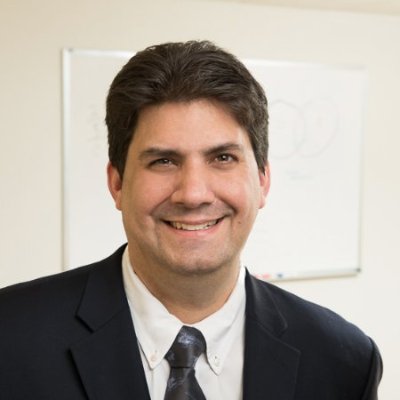standardization
See the following -
How Style Guides Sustain Effective Consistency In EHR Design
Style guides have been described as an EHR designer’s “source of truth.” Many large healthcare organizations design their own unique style guide to create a framework used and recognized at various department levels in implementing an EHR to place orders and record clinical documentation. Read More »
- Login to post comments
How the Federal Reserve Bank of New York Navigates the 'Supply Chain' of Open Source Software
Large companies have divisions and subsidiaries that make efficient organizational management a challenge. Perhaps no one recognizes that more than Colin Wynd, vice president and head of the Common Service Organization at the Federal Reserve Bank of New York. Wynd is charged with ensuring that software development practices and strategy are forward-thinking and secure, and adhere to compliance regulations. Several years ago, Wynd and his team started to think more holistically about how their developer teams worked, he explained in a presentation at the recent Jenkins World conference in San Francisco...
- Login to post comments
How VA Is Driving Telemedicine
Telemedicine, or the broader term telehealth, allows patients to receive medical examinations from primary care physicians, consult with specialists, participate in one-on-one psychotherapy or counseling, and share diagnostic information using videoconferencing and other electronic communications tools. It has mainly been used to reach those who live in rural areas, but its influence is spreading. Read More »
- Login to post comments
i2b2 Foundation and tranSMART Foundation Announce Intent to Merge
 The two leading open-source foundations (The tranSMART Foundation and the i2b2 Foundation) in the healthcare and translational research space are merging into a single foundation to advance the field of precision medicine. These organizations provide open-source software and databases representing more than 100 million patient lives to thousands of physicians and scientists worldwide...
The two leading open-source foundations (The tranSMART Foundation and the i2b2 Foundation) in the healthcare and translational research space are merging into a single foundation to advance the field of precision medicine. These organizations provide open-source software and databases representing more than 100 million patient lives to thousands of physicians and scientists worldwide...
- Login to post comments
In Healthcare, Time To Free The Data
To justify optimism about healthcare IT, we need to free the data tied up in electronic health records -- and it is happening. Read More »
- Login to post comments
ITU And Continua Heath Alliance To Host E-Health Interop Event
ITU and Continua Health Alliance are organizing an event to analyze recent developments in the e-health sphere, shed light on emerging product offerings, and assess the interoperability of e-health solutions developed in accordance with Continua’s Design Guidelines. Read More »
- Login to post comments
Jembi Participates In Artificial Intelligence Workshop In Cape Town
Jembi Board member, Dr Deshen Moodley, and Executive Director, Prof Chris Seebregts, participated in an artificial intelligence workshop in Cape Town from 24-25 April 2013. Read More »
- Login to post comments
ONC Patient Matching Project Moving Forward...Slowly
 Last week, the Office of the National Coordinator for Health Information Technology (ONC) released the final report from its Patient Matching, Aggregation, and Linking (PMAL) Project, as well as an additional report describing a pilot project to test the Patient Demographic Data Quality Framework (PDDQ) to Support Patient Matching that was released several years ago. Funded from June 2015 through September 2018 by the HHS Office of the Assistant Secretary for Planning and Evaluation (ASPE) through the Patient-Centered Outcomes Research (PCOR) Trust Fund, PMAL was one of the activities I described in an earlier post. The Final Report reviews the four challenged of patient matching and linking that the PMAL project attempted to address...
Last week, the Office of the National Coordinator for Health Information Technology (ONC) released the final report from its Patient Matching, Aggregation, and Linking (PMAL) Project, as well as an additional report describing a pilot project to test the Patient Demographic Data Quality Framework (PDDQ) to Support Patient Matching that was released several years ago. Funded from June 2015 through September 2018 by the HHS Office of the Assistant Secretary for Planning and Evaluation (ASPE) through the Patient-Centered Outcomes Research (PCOR) Trust Fund, PMAL was one of the activities I described in an earlier post. The Final Report reviews the four challenged of patient matching and linking that the PMAL project attempted to address...
- Login to post comments
Open Source To Be The Norm In German Public Procurement
 On 8 December 2021 a coalition of SPD (Social Democratic Party, the Greens (Alliance 90 / The Greens) and Liberals (Free Democratic Party) took office after obtaining a majority in the 26 September federal elections. With the new government comes a renewed commitment to digitalisation of not only the public sector but society and economy at large...In the final coalition agreement open source software plays an important role. It is considered in a digital sovereignty and pan-European context, as a way to bring progress to digital infrastructure and government services. Interoperability, data portability, open standards and open source are all named as prerequisites to achieve digital sovereignty.
On 8 December 2021 a coalition of SPD (Social Democratic Party, the Greens (Alliance 90 / The Greens) and Liberals (Free Democratic Party) took office after obtaining a majority in the 26 September federal elections. With the new government comes a renewed commitment to digitalisation of not only the public sector but society and economy at large...In the final coalition agreement open source software plays an important role. It is considered in a digital sovereignty and pan-European context, as a way to bring progress to digital infrastructure and government services. Interoperability, data portability, open standards and open source are all named as prerequisites to achieve digital sovereignty.
- Login to post comments
The Blockchain Interview with Jason Goldwater
 There are three, initially, that it has the potential to solve. First is access to data. The way that systems have been set up in hospitals or large integrated physician networks is that the data will either reside in a centralized server or now the trend is to reside it in a cloud. That’s fine and that certainly has been effective, but you’re talking about a large consolidation of data in a centralized location. Blockchain is very different because it is what is known as distributed ledger technology...
There are three, initially, that it has the potential to solve. First is access to data. The way that systems have been set up in hospitals or large integrated physician networks is that the data will either reside in a centralized server or now the trend is to reside it in a cloud. That’s fine and that certainly has been effective, but you’re talking about a large consolidation of data in a centralized location. Blockchain is very different because it is what is known as distributed ledger technology...
- Login to post comments
The Future of File Sharing: Integrating Pydio and ownCloud
 The open source file sharing ecosystem accommodates a large variety of projects, each supplying their own solution, and each with a different approach. There are a lot of reasons to choose an open source solution rather than commercial solutions like Dropbox, Google Drive, iCloud, or OneDrive. These solutions offer to take away worries about managing your data but come with certain limitations, including a lack of control and integration into existing infrastructure. There are quite a few file sharing and sync alternatives available to users, including ownCloud and Pydio...
The open source file sharing ecosystem accommodates a large variety of projects, each supplying their own solution, and each with a different approach. There are a lot of reasons to choose an open source solution rather than commercial solutions like Dropbox, Google Drive, iCloud, or OneDrive. These solutions offer to take away worries about managing your data but come with certain limitations, including a lack of control and integration into existing infrastructure. There are quite a few file sharing and sync alternatives available to users, including ownCloud and Pydio...
- Login to post comments
The Pathway to Patient Data Ownership and Better Health
Digital health data are rapidly expanding to include patient-reported outcomes, patient-generated health data, and social determinants of health. Measurements collected in clinical settings are being supplemented by data collected in daily life, such as data derived from wearable sensors and smartphone apps, and access to other data, such as genomic data, is rapidly increasing. One projection suggests that a billion individuals will have their whole genome sequenced in the next several years. These additional sources of data, whether patient-generated, genomic, or other, are critical for a comprehensive picture of an individual’s health...
- Login to post comments
UK House Of Commons Select Committee Publishes Report Criticising RCUK’s Open Access Policy
The House of Commons Business, Innovation and Skills (BIS) Committee has today published a critical report on the Open Access (OA) policy introduced on April 1st by Research Councils UK (RCUK). Read More »
- Login to post comments
“Health Care Productivity” Is An Oxymoron
It has long baffled me when politicians and others trumpet job growth in the health care sector, while at the same time bemoaning rising health costs, as if there was no connection. Some [cities] have bet a large portion of their economic future on their growing health care industries, and some economists attribute much of the nation’s recent economic revival on the growth in the health care sector. But job growth in itself is not always a good sign... Read More »
- Login to post comments